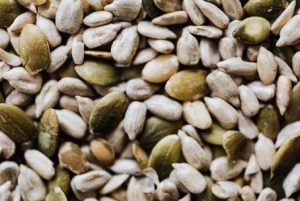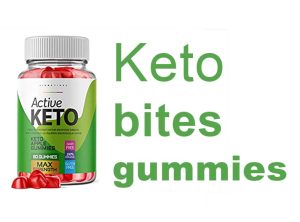
Watermelon is more than just a refreshing summer treat—it’s a powerhouse of nutrients and health benefits. Whether you enjoy it sliced, blended into a smoothie, or as part of a salad, watermelon offers more than just a burst of sweetness. This article delves into the numerous benefits of watermelon, exploring how this vibrant fruit can contribute to overall health and well-being.
1. Hydration Hero: Watermelon’s High Water Content
Watermelon is aptly named, as it is composed of about 92% water, making it one of the most hydrating fruits available. Staying hydrated is crucial for maintaining bodily functions, including digestion, circulation, temperature regulation, and more. Eating watermelon is an enjoyable and natural way to replenish fluids, especially during hot weather or after physical activity.
1.1. Aiding in Detoxification
The high water content in watermelon also supports the body’s natural detoxification processes. By flushing out toxins through urine, watermelon helps in maintaining healthy kidneys and reducing the risk of kidney stones.
1.2. Promoting Skin Health
Proper hydration is essential for skin health. Watermelon not only hydrates from within but also provides vitamins A and C, which are known to promote skin elasticity and collagen production, keeping your skin supple and youthful.
2. Rich in Antioxidants: Fighting Free Radicals
Watermelon is packed with powerful antioxidants, such as lycopene, vitamin C, and beta-carotene. These compounds help protect the body against oxidative stress, which can lead to chronic diseases and premature aging.
2.1. Lycopene’s Role in Cancer Prevention
Lycopene, the pigment that gives watermelon its red color, has been extensively studied for its potential in reducing the risk of certain types of cancer, particularly prostate cancer. It neutralizes free radicals, reducing inflammation and preventing cell damage.
2.2. Supporting Eye Health
The beta-carotene found in watermelon is converted into vitamin A in the body, which is vital for maintaining good vision. Regular consumption of watermelon can help reduce the risk of age-related macular degeneration and other eye conditions.
3. Heart Health: Watermelon’s Cardiovascular Benefits
Watermelon can be a heart-healthy addition to your diet due to its high content of citrulline, an amino acid that can improve blood flow and reduce blood pressure.
3.1. Citrulline and Blood Pressure Regulation
Citrulline in watermelon is converted into arginine, another amino acid that helps in the production of nitric oxide. Nitric oxide relaxes blood vessels, improving circulation and lowering blood pressure.
3.2. Reducing Bad Cholesterol
Watermelon also contains fiber and antioxidants that contribute to lowering LDL (bad) cholesterol levels. This, in turn, reduces the risk of developing heart disease and stroke.
4. Weight Management: A Low-Calorie, Nutrient-Dense Option
For those looking to manage their weight, watermelon is a great snack option. It is low in calories but rich in nutrients, making it an ideal choice for satisfying sweet cravings without compromising on nutrition.
4.1. Boosting Metabolism
The vitamins and minerals in watermelon, particularly vitamin C and potassium, play a role in boosting metabolism. This helps in burning calories more efficiently and can support weight loss efforts.
4.2. Satiety and Portion Control
The high water and fiber content in watermelon also contribute to a feeling of fullness, which can help in controlling portion sizes and reducing overall calorie intake.
5. Muscle Recovery: Watermelon’s Athletic Advantages
Athletes and fitness enthusiasts can benefit from watermelon’s unique nutritional profile. It aids in muscle recovery and reduces soreness after exercise.
5.1. Citrulline for Muscle Soreness
The citrulline in watermelon has been shown to reduce muscle soreness, making it an excellent post-workout snack. Consuming watermelon juice before or after exercise can improve endurance and recovery time.
5.2. Electrolyte Balance
Watermelon is a good source of electrolytes like potassium and magnesium, which are lost through sweat during exercise. Replenishing these electrolytes helps maintain fluid balance and prevents muscle cramps.
6. Supporting Digestive Health: Fiber Content in Watermelon
Although watermelon is not high in fiber, it does contain enough to support digestive health. The combination of water and fiber in watermelon promotes healthy digestion and regular bowel movements.
6.1. Preventing Constipation
The water and small amount of fiber in watermelon help to keep the digestive system functioning smoothly, preventing constipation and promoting regularity.
6.2. Soothing the Stomach
Watermelon’s natural sugars and hydrating properties can also soothe the stomach and provide relief from minor indigestion.
7. Immune System Boost: Strengthening Your Body’s Defenses
Watermelon is a rich source of vitamin C, which is essential for a healthy immune system. Regular consumption of watermelon can help your body fight off infections and diseases.
7.1. Vitamin C for Immune Health
Vitamin C stimulates the production of white blood cells, which are crucial for defending the body against pathogens. It also acts as an antioxidant, protecting immune cells from damage.
7.2. Enhancing Wound Healing
The combination of vitamin C and other nutrients in watermelon supports wound healing by promoting the formation of new connective tissue and reducing inflammation.
8. Anti-Inflammatory Properties: Reducing Chronic Inflammation
Chronic inflammation is linked to numerous health issues, including heart disease, diabetes, and cancer. Watermelon’s rich content of antioxidants and anti-inflammatory compounds can help reduce inflammation throughout the body.
8.1. Cucurbitacin E: A Potent Anti-Inflammatory
Watermelon contains cucurbitacin E, a compound with strong anti-inflammatory properties. This can help reduce the risk of chronic diseases associated with inflammation.
8.2. Reducing Arthritis Symptoms
For those with arthritis, the anti-inflammatory properties of watermelon can help alleviate joint pain and improve mobility.
9. Bone Health: Strengthening Your Skeleton
Watermelon contributes to bone health through its content of potassium, magnesium, and vitamins A and C, all of which play a role in maintaining strong bones.
9.1. Calcium Absorption and Bone Density
The magnesium and potassium in watermelon aid in calcium absorption, which is vital for bone density and strength. Regular consumption can help prevent osteoporosis and other bone-related issues.
9.2. Supporting Cartilage Health
Vitamin C in watermelon is necessary for the production of collagen, which supports cartilage health and joint flexibility.
10. Promoting Healthy Skin and Hair: Watermelon’s Beauty Benefits
Watermelon’s hydrating properties and nutrient profile also make it beneficial for skin and hair health.
10.1. Collagen Production and Skin Elasticity
Vitamin C in watermelon is crucial for collagen production, which helps keep skin firm and elastic. This can reduce the appearance of wrinkles and promote a youthful complexion.
10.2. Strengthening Hair
The vitamin A in watermelon helps maintain healthy hair by supporting the production of sebum, the natural oil that keeps hair moisturized and shiny.
11. Improving Brain Health: Cognitive Benefits of Watermelon
The antioxidants and nutrients in watermelon also have benefits for brain health, improving memory and cognitive function.
11.1. Preventing Cognitive Decline
Lycopene and other antioxidants in watermelon help protect brain cells from damage, which can prevent cognitive decline and reduce the risk of neurodegenerative diseases like Alzheimer’s.
11.2. Enhancing Mood and Reducing Stress
Watermelon contains B vitamins, which are known to support brain function and mood regulation. Eating watermelon can help reduce stress and improve overall mental well-being.
12. Kidney Health: Supporting Urinary Function
Watermelon’s high water content and diuretic properties make it beneficial for kidney health and urinary function.
12.1. Preventing Kidney Stones
Regular consumption of watermelon can help prevent kidney stones by promoting urine flow and reducing the concentration of stone-forming substances.
12.2. Supporting Detoxification
The diuretic effect of watermelon also aids in flushing out toxins from the kidneys, supporting overall detoxification.
13. Boosting Energy Levels: Watermelon as a Natural Energizer
Watermelon is a natural source of quick energy due to its high content of natural sugars and vitamins.
13.1. Instant Energy Boost
The natural sugars in watermelon provide an immediate energy boost, making it an excellent snack for combating fatigue and keeping you active throughout the day.
13.2. Sustained Energy Release
The combination of sugars, fiber, and water in watermelon ensures a sustained release of energy, preventing sugar crashes and keeping you energized longer.
14. Versatile Culinary Uses: Enjoying Watermelon in Different Ways
Watermelon’s versatility makes it a great addition to a variety of dishes, from sweet to savory.
14.1. Refreshing Salads
Watermelon pairs well with ingredients like feta cheese, mint, and cucumber, creating refreshing salads that are perfect for summer.
14.2. Smoothies and Juices
Blending watermelon into smoothies or juices is a delicious way to enjoy its benefits while staying hydrated.
14.3. Grilled Watermelon
Grilling watermelon caramelizes its natural sugars, adding a unique twist to its flavor profile. It can be served as a dessert or a side dish.
15. Environmental and Economic Benefits of Watermelon Farming
In addition to personal health benefits, watermelon farming offers environmental and economic advantages.
15.1. Low Environmental Impact
Watermelon is a relatively low-impact crop that requires less water than many other fruits, making it a sustainable choice.
15.2. Supporting Local Economies
Buying locally grown watermelon supports local farmers and contributes to the local economy, especially in regions where watermelon is a primary crop.
Frequently Asked Questions About Watermelon
1. Can eating too much watermelon cause health issues?
While watermelon is healthy, consuming it in large amounts can lead to digestive issues, such as bloating or diarrhea, due to its high water and fiber content.
2. Is watermelon good for people with diabetes?
Watermelon has a high glycemic index, so people with diabetes should consume it in moderation and monitor their blood sugar levels.
3. How should watermelon be stored?
Whole watermelons can be stored at room temperature, but once cut, they should be refrigerated and consumed within a few days.
4. Are watermelon seeds edible?
Yes, watermelon seeds are edible and packed with nutrients like protein, healthy fats, and minerals. They can be eaten raw or roasted.
5. Can watermelon be eaten at night?
Watermelon can be eaten at any time, but due to its high water content, consuming it at night may lead to frequent urination.
6. Is watermelon safe for pets?
Watermelon is generally safe for pets like dogs, but it should be given in moderation and without seeds or rind, which can cause digestive issues.




